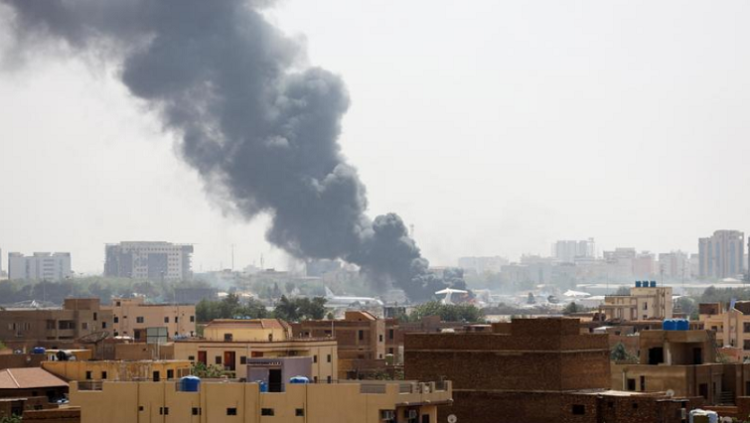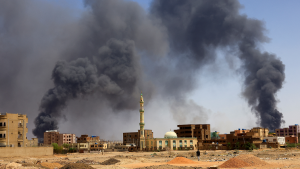The United Nations Security Council (UNSC) has heard that the growing ethnicization of the fighting in Sudan risked engulfing the country in a prolonged conflict with implications for the wider region.
That was the message delivered by the UN’s top official in the country, Volker Perthes, who also pointed to the over one million people displaced in Sudan, some 840 000 internally and about 250 000 crossing borders into neighbouring countries. The Council also heard briefings from the African Union and the Inter-Governmental Authority on Development amid calls for better coordination of international efforts to bring the fighting to an end.
A seven-day temporary ceasefire achieved at US-Saudi-mediated talks in Jeddah at the weekend is due to go into effect Monday night in Sudan, in an effort to boost the delivery of desperately needed humanitarian supplies to more than half the country’s population, amid continued violations of international humanitarian and human rights law, including looting and criminality.
“In Khartoum, Darfur and elsewhere, the warring parties continue their fight without regard for the laws and norms of war. Homes, hops, places of worship and water and electricity installations have been destroyed or damaged. The health sector is collapsing with more than two third of hospitals closed, many healthcare workers killed and medical supplies running low. The frequently reported use of health facilities as military positions is unacceptable. I am appalled by the reports of sexual violence against women and girls, including allegations of rape in Khartoum and Darfur,” says Volker Perthes, Secretary-General’s Special Representative to Sudan.
The UN says it remains firmly committed to four immediate priorities including achieving a stable ceasefire with a monitoring mechanism; preventing the escalation or ethnicization of the conflict; protection of civilians and provision of humanitarian relief and preparing, for when the time is ripe, for a fresh political process with a broad array of civil and political actors as questions persist on how the international community missed the genesis of this latest conflict.
The African Union says it continues to work on developing a comprehensive de-escalation plan.
Commissioner for Political Affairs, Peace and Security Bankole Adeoye.
“We also welcome the commitment displayed by the two warring parties for signing a short-term ceasefire and humanitarian arrangement. However, we call for more concerted actionable efforts towards a lasting suspension of hostilities. We urge them to go the full course for peace. A comprehensive, permanent silencing of the guns now is the only remedy for the good people of Sudan.”
With calls for better coordination from the international community, particularly through the trilateral mechanism made up of the AU, the UN and IGAD, the latter’s Executive Secretary Workneh Gebeyehu explains.
“While I appreciate and commend the Kingdom of Saudi Arabia and the United States of America for their relentless effort in facilitating the Jeddah talks, I encourage them to involve and engage the trilateral mechanism as the entity trusted by regional, continental and international community to facilitate a political process in the Republic of Sudan. The only way we kind of stop the fighting in Sudan, your Excellency’s, sooner rather than later, if our efforts are better coordinated.”
The temporary truce is expected to go into effect at 9.45pm Khartoum time Monday night amid concerns that this will simply be the latest agreement between the warring parties not to be fully observed.
Sudan’s evolution out of the conflict depends on its success, as the world watches and waits.





